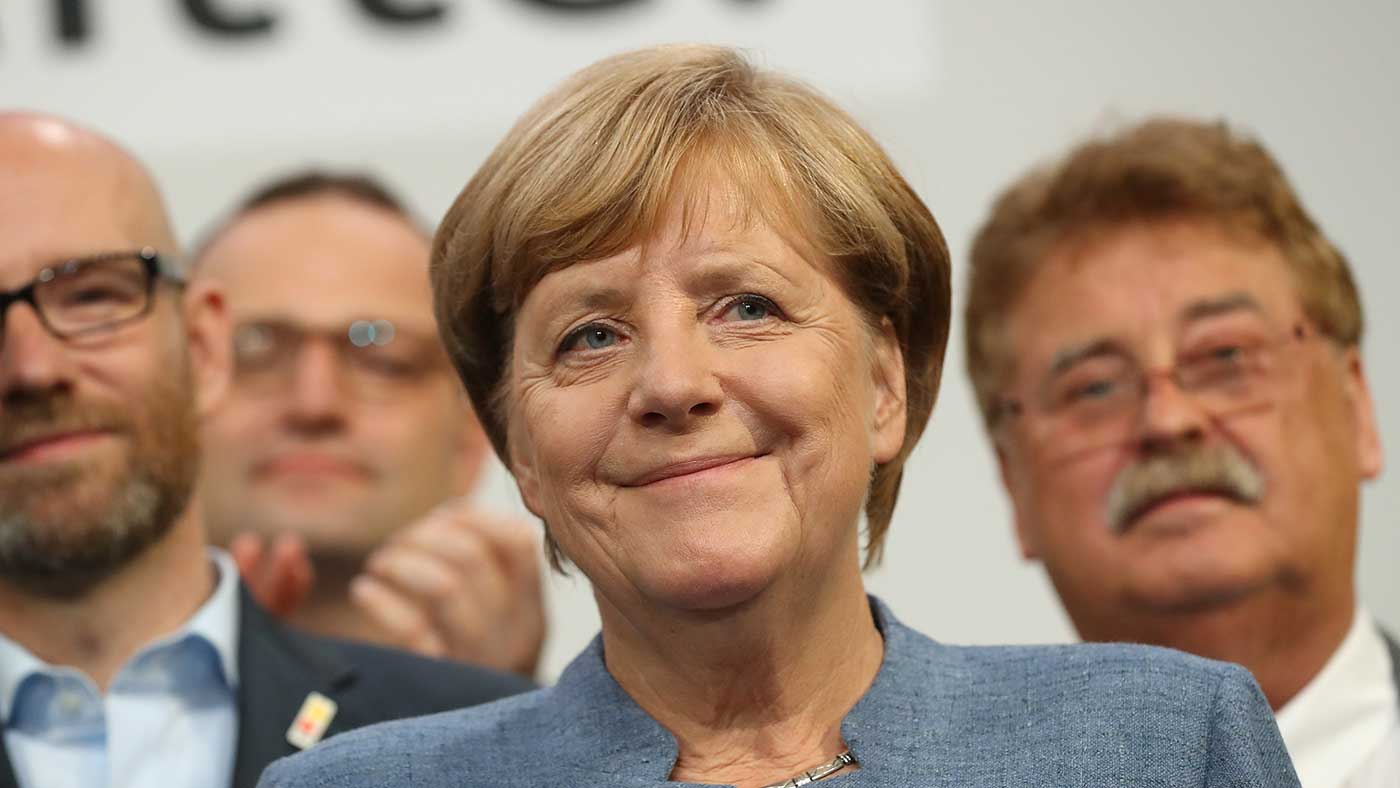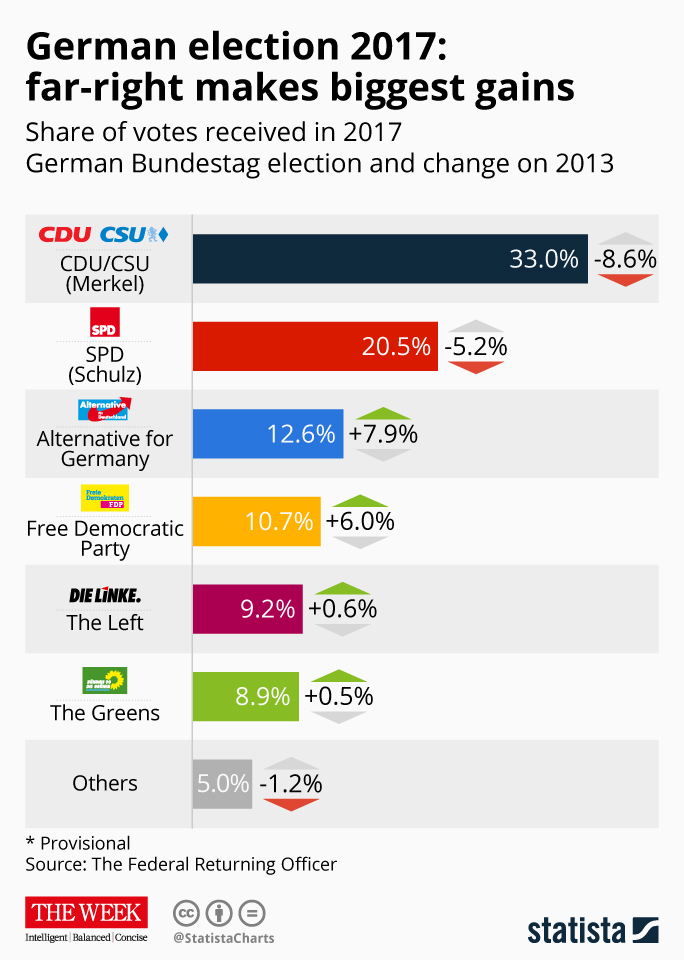Angela Merkel re-elected - but far-right AfD advances
Alternative fur Deutschland surged into third place with 13% of the vote

A free daily email with the biggest news stories of the day – and the best features from TheWeek.com
You are now subscribed
Your newsletter sign-up was successful
Angela Merkel has been returned to power, securing her fourth term as German Chancellor in yesterday's general election.
Merkel’s centre-right Christian Democrat-led alliance secured 33% of the vote, 12 points ahead of her main rivals, Martin Schulz’s centre-left Social Democrats (SPD), which secured around 21% of the vote.
The SPD result is the worst for the party since 1949, prompting Schulz to declare an end to the “grand coalition” with Merkel’s party, and a promise his party would now sit in opposition to the Chancellor.
The Week
Escape your echo chamber. Get the facts behind the news, plus analysis from multiple perspectives.

Sign up for The Week's Free Newsletters
From our morning news briefing to a weekly Good News Newsletter, get the best of The Week delivered directly to your inbox.
From our morning news briefing to a weekly Good News Newsletter, get the best of The Week delivered directly to your inbox.
The far-right Alternative fur Deutschland (AfD) secured 13% of the vote to become the third-biggest party in the country. It's the first time in more than 50 years that an openly nationalist party will be represented in the German parliament.
“AfD’s propulsion into parliament just four years into its existence gives the country its first far-right force on the national stage since 1961, and a faction with the most substantial presence of rightwing extremists since the Nazi era,” The Guardian says.
Clipped wings
The result is “disastrous” for Merkel, despite her win, says BBC Berlin correspondent Jenny Hill. “The chancellor is being punished … for opening Germany's door to almost 900,000 undocumented refugees and migrants,” Hill says.
A free daily email with the biggest news stories of the day – and the best features from TheWeek.com
With the SPD’s withdrawal from the ruling coalition, Merkel is faced with the task of building new partnerships to form a government, a task that could take months of delicate negotiations.
Merkel said: “Today we can say that we now have a mandate to assume responsibility and we're going to assume this responsibility calmly, talking with our partners, of course.”

Inforgraphic provided for The Week by Statista
-
 The environmental cost of GLP-1s
The environmental cost of GLP-1sThe explainer Producing the drugs is a dirty process
-
 Greenland’s capital becomes ground zero for the country’s diplomatic straits
Greenland’s capital becomes ground zero for the country’s diplomatic straitsIN THE SPOTLIGHT A flurry of new consular activity in Nuuk shows how important Greenland has become to Europeans’ anxiety about American imperialism
-
 ‘This is something that happens all too often’
‘This is something that happens all too often’Instant Opinion Opinion, comment and editorials of the day
-
 Epstein files topple law CEO, roil UK government
Epstein files topple law CEO, roil UK governmentSpeed Read Peter Mandelson, Britain’s former ambassador to the US, is caught up in the scandal
-
 Iran and US prepare to meet after skirmishes
Iran and US prepare to meet after skirmishesSpeed Read The incident comes amid heightened tensions in the Middle East
-
 Israel retrieves final hostage’s body from Gaza
Israel retrieves final hostage’s body from GazaSpeed Read The 24-year-old police officer was killed during the initial Hamas attack
-
 China’s Xi targets top general in growing purge
China’s Xi targets top general in growing purgeSpeed Read Zhang Youxia is being investigated over ‘grave violations’ of the law
-
 Panama and Canada are negotiating over a crucial copper mine
Panama and Canada are negotiating over a crucial copper mineIn the Spotlight Panama is set to make a final decision on the mine this summer
-
 Why Greenland’s natural resources are nearly impossible to mine
Why Greenland’s natural resources are nearly impossible to mineThe Explainer The country’s natural landscape makes the task extremely difficult
-
 Iran cuts internet as protests escalate
Iran cuts internet as protests escalateSpeed Reada Government buildings across the country have been set on fire
-
 US nabs ‘shadow’ tanker claimed by Russia
US nabs ‘shadow’ tanker claimed by RussiaSpeed Read The ship was one of two vessels seized by the US military